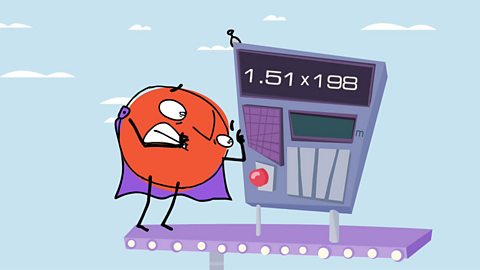Let’s see what Jerry and Albert are buying for their holiday.
Looking good! We should work out how much money they’ll need. Let’s make a rough estimate by rounding the costs to the nearest pound.
Alberts swimming trunks are £4.99, because the amount ends in more than 50p, we round up to £5.
His snorkel is £2.20 which means the amount ends in less than 50p, so we round down to £2.
Alberts goggles are £3.50. Because £3.50 is exactly half-way between £3 and £4, we round up.
In total, Jerry and Albert will need about £11 for their holiday shop.
Don’t forget though, if you’re rounding down money to the nearest pound, you may need a little bit extra when you get to the tills.
If you want a more accurate estimation, you can round to the nearest 50p. You can round £1.45 to £1.50.
Eh… just make sure you always keep your receipt.
Rounding money or decimals
Rounding a price to the nearest pound is the same as rounding a decimal to the closest whole number.
If the price is £2.80 you can round up to £3 because the number in the tenths position is 8. The closest whole number to 2.8 is 3.
If the price is £2.08 you can round down to £2 because the number in the tenths position is 0. The closest whole number to 2.08 is 2.
Don't forget, if the number you are rounding is 5, round up. £2.50 rounded to the nearest pound is £3.
More on Number and number processes
Find out more by working through a topic
- count22 of 25

- count23 of 25

- count24 of 25

- count25 of 25
